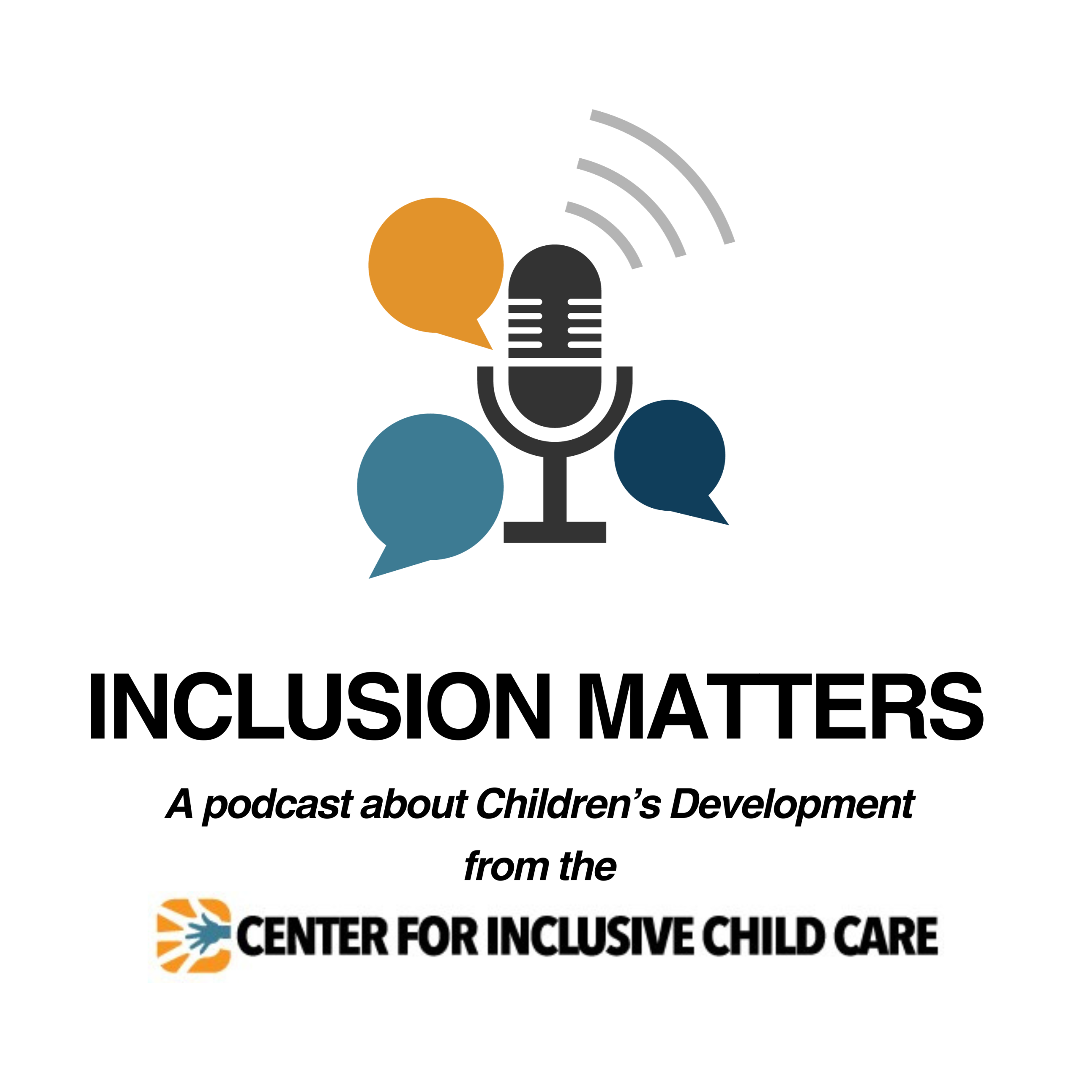Podcast

Inclusion Matters is a podcast produced by CICC. Early childhood experts discuss a wide array of important topics for early childhood professionals.
Inclusion Matters is also available on Spotify, Overcast, Google Podcasts, and Radio Public.
Six Acquired Strengths for Children’s Mental Health--Self Regulation and Affiliation: Part Two
In Part 2 of Dr. Perry’s Six Acquired Strengths, we will discuss the importance of self regulation in preschoolers and its impact on social skill development. These two emotional milestones are essential to a young child’s learning and success now and later in life. You can do much to enhance their mastery of these ‘strengths’!
(Length: 11:37)Six Acquired Strengths for Children’s Mental Health--Attachment: Part One
In this podcast, Cindy Croft and Priscilla Weigel will discuss children’s mental health and Dr. Bruce Perry’s Six Acquired Strengths for emotional development in young children. We begin the discussion with attachment as the foundation for a child’s positive mental health. Listen to discover ways that early educators can build the responsive relationship by tuning in to children.
(Length: 8:28)Creativity--Looking for Children’s Cues
In this podcast, Priscilla Weigel and Cindy Croft will discuss children who can present challenges to us by their engagement. Some children are eager to participate in activities and others may need social prompting and encouragement in order to join in the fun. Children show creativity in many ways that can differ from our ideas; we need to read their cues to see when they need some help and when we need to follow their lead!
(Length: 14:33)Emotional Sensitivity
Emotional sensitivity is the ease or difficulty with which a child responds emotionally to situations. Some children are very sensitive to what is going around them while others seem oblivious to the feelings or mood of peers. How can we help children learn empathetic skills and also learn about their own feelings and how to express themselves to others? This podcast will look at children’s sensitivity levels and how we as professionals can guide them in their relationships with others.
(Length: 15:39)Intensity--I Want Your Energy!
Intensity as a temperament trait is all about the amount of energy a child uses to express his emotions, and we know that some children cry, talk, and laugh more loudly than anyone else in the program! We want to honor this natural trait in children for the good things about high intensity while also giving children tools for impulse control and friendship skills. Join Priscilla and Cindy as they discuss children with high intensity and the energy they seek from others.
(Length: 15:39)Run Away or Run into Your Arms--Slow to Approach/Withdraw
A child’s initial tendency to respond to a new experience, new person, or new environment can be either ‘arms open wide’ or ‘wait-and-see’. Both types of approaches need our guidance as early childhood professionals to be sure that children are getting the social interactions they need to be successful and validation for their sense of self-esteem. If you work with either or both of these temperaments, you’ll want to listen to this engaging podcast.
(Length: 15:39)